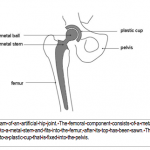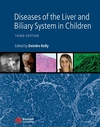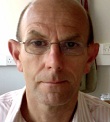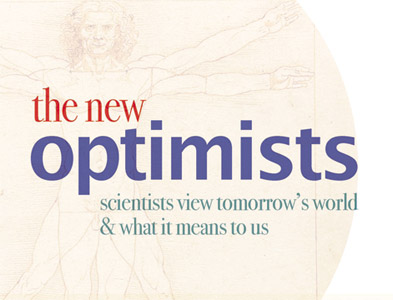Posts Tagged ‘University of Birmingham’
June 23rd, 2010
 Throughout our recent history, humans have sought both consciously and subconsciously, to identify how we differ from the rest of the animal kingdom.
Throughout our recent history, humans have sought both consciously and subconsciously, to identify how we differ from the rest of the animal kingdom.
Research is finally breaking down these self-created barriers, embedding humankind and our evolution soundly into the animal kingdom, says Dr Susannah Thorpe, an expert on the locomotor ecology of the great apes, including humans.
 Dr Thorpe is a lecturer in Animal Behaviour at the University of Birmingham. Her research has focused on the locomotion and ecology of the great apes and in particular, the evolution of human bipedalism.(See also her work reported on the Discovery Channel, as well as the BBC.)
Dr Thorpe is a lecturer in Animal Behaviour at the University of Birmingham. Her research has focused on the locomotion and ecology of the great apes and in particular, the evolution of human bipedalism.(See also her work reported on the Discovery Channel, as well as the BBC.)
Her work has recently been published in Science and Proceedings of the National Academy of Science and she has presented at conferences worldwide.
Tags: animal behaviour, biomechanics, evolution, great apes, human bipedalism, national academy of science, orangutans, susannah thorpe, University of Birmingham
Posted in People, The Ways of Science, Thinking differently | No Comments »
June 22nd, 2010
Our view of science tends to be compartmentalised. But scientists from different disciplines often work together. Their very differences provide new insights, perspectives and understanding. Sometimes such collaborations lead to innovative technologies.
 Take David Hukins, for example. A former Professor of Physics at Aberdeen, he’s now Professor of Biomedical Engineering and Head of Mechanical Engineering at the University of Birmingham. His seemingly disparate knowledge and skills is particularly valuable when dealing with the structure, function, failure, replacement and repair of tissues and parts of the human body.
Take David Hukins, for example. A former Professor of Physics at Aberdeen, he’s now Professor of Biomedical Engineering and Head of Mechanical Engineering at the University of Birmingham. His seemingly disparate knowledge and skills is particularly valuable when dealing with the structure, function, failure, replacement and repair of tissues and parts of the human body.
We’re already familiar with the success of joint replacement. They have improved dramatically in the last few years. People are recovering more quickly from the operation, and the joint itself is lasting much longer. This is in part due to the skill of surgeons. It’s largely due, however, to new materials and new engineering.
 Professor Hukins is involved in the development of new methods for engineering surfaces, and new coating materials and techniques so that artificial joints are even more successful. Because of this kind of work, a start has been made in replacing the intervetebral joints of the spine.
Professor Hukins is involved in the development of new methods for engineering surfaces, and new coating materials and techniques so that artificial joints are even more successful. Because of this kind of work, a start has been made in replacing the intervetebral joints of the spine.
Tissue engineering, in its infancy, has already been used to repair cartilage.
Tags: biomedical engineering, david hukins, engineering, mechanical engineering, tissue engineering, University of Birmingham
Posted in People, The Ways of Science, Thinking differently | No Comments »
June 21st, 2010
Evidence-based medicine has at its foundation high quality clinical research.
Take, for example, some of the most common diseases afflicting 21st century populations in affluent societies — hypertension, obsity and a wide range of autoimmune diseases such as rheumatoid arthritis, Type 1 diabetes and thyroid diseases.
 This last set of diseases is the particular research area of Professor Jayne Franklyn, one of the world’s authorities on thyroid disorders. All of these diseases, she says, are so-called ‘polygenic disorders‘. Investigations now enabled by number-crunching of vast datasets on many thousands of patients with these common diseases allows us to determine the relative contribution of minor variations in DNA structure. We can thereby assess the risk of people likely to suffer from them and, where we can, take preventative steps.
This last set of diseases is the particular research area of Professor Jayne Franklyn, one of the world’s authorities on thyroid disorders. All of these diseases, she says, are so-called ‘polygenic disorders‘. Investigations now enabled by number-crunching of vast datasets on many thousands of patients with these common diseases allows us to determine the relative contribution of minor variations in DNA structure. We can thereby assess the risk of people likely to suffer from them and, where we can, take preventative steps.
Jayne Franklin is Professor of Medicine and Head of School of Clinical and Experimental Medicine at the University of Birmingham. She’s also Consultant Endocrinologist, University Hospitals Birmingham NHS Trust.
Her laboratory and clinical research interests focussing on the pathogenesis of thyroid cancer and autoimmune thyroid disease and the effects of subclinical thyroid dysfunction.
She’s a Fellow of the Academy of Medical Sciences, and American Thyroid Association Paul Starr Lecturer. She was awarded the Royal College of Physicians Goulstonian Lectureship in 1994, as well as Plenary Lectureships of the Society for Endocrinology, Clinical Endocrinology Trust, and the International Congress of Endocrinology.
As well as being Head of the School of Clinical and Experimental Medicine at the University of Birmingham she an active teacher and researcher, with over 200 peer reviewed papers in thyroid research.
Tags: clinical and experimental medicine, endocrinology, goulstonian lecturership, jayne franklyn, medicine, royal college of physicians, thyroid, University of Birmingham
Posted in People, The Ways of Science, Working together | No Comments »
June 21st, 2010
Just how do your cells know what’s particularly you and what’s not-you? How, for all of us, do our cells discriminate between self and non-self?
Or, to put it into the more formal language of immunologists, what is the spectrum of antigens recognised by the peripheral T-cell population?
Such is the important work of Professor Graham Anderson in the School of Immunity and Infection at the University of Birmingham. And it’s complex work, requiring the input from a variety of disciplines, and from clinicians as well as pure researchers — Professor Anderson, for example, monitors how designer organs function in an in vivo setting.
In The New Optimists, Professor Anderson makes the point that it’s this very sociability of science and scientists that leads to a sharing of ideas, a key driver in developing scientific understanding.
Tags: antigens, graham anderson, immunity, immunology, infection, T-cells, University of Birmingham
Posted in People, The Ways of Science, Working together | No Comments »
June 21st, 2010
 Difficult, complex operations such as liver transplantation have not only become safe but routine as a result of a combination of blue sky scientific research and clinical science. As a Director of the National Liver Unit at Birmingham Children’s Hospital and Professor of Paediatric Heptology at the University of Birmingham, Deirdre Kelly is at the centre of such world-class translational medicine.
Difficult, complex operations such as liver transplantation have not only become safe but routine as a result of a combination of blue sky scientific research and clinical science. As a Director of the National Liver Unit at Birmingham Children’s Hospital and Professor of Paediatric Heptology at the University of Birmingham, Deirdre Kelly is at the centre of such world-class translational medicine.
In The New Optimists, she also makes the point that complex questions about the mechanisms of the disease and any genetic basis of disease demands sophisticated collaborations between experts to maximise success.
Professor Kelly is a graduate of Trinity College, Dublin. She has trained in both adult and paediatric gastroenterology and hepatology. She set up the Paediatric Liver Unit at Birmingham Children’s Hospital which provides a national and international service for children with liver failure and undergoing liver transplantation, transforming survival and outcome for these children. Until 2008, the Unit was the only national unit to be designated for small bowel and liver transplantation in the UK.
She runs an active research programme focussing on viral hepatitis in children, molecular biology and genetics of inherited liver disease, quality and outcome of life following liver and/or intestinal transplantation. 
She is a Commissioner on the Care Quality Commission (2008-). She is currently President of the European Society of Paediatric Gastroenterology, Hepatology and Nutrition (ESPGHAN). She was Chairman of the Lunar Society (2007-2009).
 She is also Editor of Diseases of the Liver and Biliary System in Children, 3rd edition (2008) Wiley-Blackwell.
She is also Editor of Diseases of the Liver and Biliary System in Children, 3rd edition (2008) Wiley-Blackwell.
Tags: birmingham children's hospital, deirdre kelly, heptology, liver disease, national liver unit, pediatrics, University of Birmingham
Posted in People, The Ways of Science, Working together | No Comments »
June 20th, 2010
The relationship between science and society is of growing importance. The science says, for example, that we must reduce carbon emissions in order to meet the challenge of climate change. But how societies can do this is another matter.
 Richard Green is a social scientist, an economist to be precise, Professor of Energy Economics at the University of Birmingham. He reminds us that, if there is one thing that unites economists, it is that people and organisations respond to incentives. Thus if governments can create the right incentives, people and companies will reduce their carbon emissions.
Richard Green is a social scientist, an economist to be precise, Professor of Energy Economics at the University of Birmingham. He reminds us that, if there is one thing that unites economists, it is that people and organisations respond to incentives. Thus if governments can create the right incentives, people and companies will reduce their carbon emissions.
Professor Green is also the Director of the Institute for Energy, Research and Policy. His main research interests are in the economics and regulation of the electricity industry and energy policy.
Tags: carbon emissions, economics, electricity industry, energy, richard green, University of Birmingham
Posted in Changing behaviour, People, Transformations | No Comments »
June 19th, 2010
 In his contribution to The New Optimists, Robin May, a Senior Lecturer in Infectious Disease in the School of Biosciences at the University of Birmingham, and Director of the May Lab, makes an assertion astounding to Jenny Uglow who wrote the Foreword to the book; namely, that we’re about to enter an age when having a copy of one’s own genome sequence is as common as carrying a mobile phone is today.
In his contribution to The New Optimists, Robin May, a Senior Lecturer in Infectious Disease in the School of Biosciences at the University of Birmingham, and Director of the May Lab, makes an assertion astounding to Jenny Uglow who wrote the Foreword to the book; namely, that we’re about to enter an age when having a copy of one’s own genome sequence is as common as carrying a mobile phone is today.
The implications of having the availability of whole genome sequences will usher in an era of truly ‘personal’ medicine, and will shake our understanding of who we really are.
At the May Lab, scientists carry out work to know more about the continual struggle between pathogens and their hosts. This struggle is a major selective force, resulting in the evolution of ever more complex host-pathogen interactions as both sides attempt to ‘win’ the conflict. Scientists here are interested in the molecular basis of such interactions and in how they have evolved.
Tags: biosciences, genome, genomics, infectious diseases, may lab, molecular medicine, pathogens, robin may, University of Birmingham
Posted in Foreword, Getting to the heart of things, People, Transformations | No Comments »
June 19th, 2010
 We can now number of genes, proteins and cells, and we can see their individual shapes in motion. One of the greatest opportunities in biomedical research today is to understand how these various jigsaw bits fit together. Currently, however, says structural biologist Michael Overduin, we have little idea of what the individual jobs are of each protein produced by our genes.
We can now number of genes, proteins and cells, and we can see their individual shapes in motion. One of the greatest opportunities in biomedical research today is to understand how these various jigsaw bits fit together. Currently, however, says structural biologist Michael Overduin, we have little idea of what the individual jobs are of each protein produced by our genes.
His work is to find this out, using computer programmes which scan the surface of each protein and predicts whether it can interact with membranes, proteins or small molecules.
Professor Michael Overduin is Professor of Structural Biology art the University of Birmingham. His research team solve the structures or proteins involved in cancer and infection in NMR Facility in the Henry Wellcome Building.(note: NMR is the abbreviation for nuclear magnetic resonance.)
This HWB•NMR is the UK’s largest NMR facility, providing academic and industrial users with open access to six NMR spectrometers operating at 500-900 MHz, four cryogenic probes and high throughput autosamplers.
Tags: biomedical sciences, cells, Henry Wellcome Building, Michael Overduin, molecular medicine, NMR, nuclear magnetic resonance, proteins, structural biology, University of Birmingham
Posted in Getting to the heart of things, People, Transformations | No Comments »
June 19th, 2010
The capacity to decipher the DNA encoding our genes, and techniques to make antibodies of exquisite mono-specificity are the foundations of modern molecular medicine.
 Experts such as Professor Peter Lane, however, still don’t know how to allow a transplanted organ to survive indefinitely without immunosuppression of the host, but they do know it’s an achievable goal — during pregnancy, the mother ‘tolerates’ the developing child without mounting a damaging immune response. Modern molecular medicine affords us glimpses of the processes that enable this to happen.
Experts such as Professor Peter Lane, however, still don’t know how to allow a transplanted organ to survive indefinitely without immunosuppression of the host, but they do know it’s an achievable goal — during pregnancy, the mother ‘tolerates’ the developing child without mounting a damaging immune response. Modern molecular medicine affords us glimpses of the processes that enable this to happen.
Peter Lane is Professor of Clinical Immunology and the MRC Centre for Immune Regulation, part of the Institute of Biomedical Research at Birmingham Medical School. He works on the molecular and cellular basis of CD4 memory as he believes that understanding these mechanisms will provide important new therapies for human diseases.
Tags: biomedical sciences, CD4, immune regulation, immunology, peter lane, University of Birmingham
Posted in Getting to the heart of things, People, Transformations | No Comments »
June 19th, 2010
 The application of our rapidly expanding knowledge about stem cells will revolutionise the future of medicine, says Jon Frampton, Professor of Stem Cell Biology and Director of the Stem Cell Centre at the University of Birmingham.
The application of our rapidly expanding knowledge about stem cells will revolutionise the future of medicine, says Jon Frampton, Professor of Stem Cell Biology and Director of the Stem Cell Centre at the University of Birmingham.
His Centre covers a wide range of research areas from neural stem cells, skeletal muscle stem cells, tooth stem cells and germ cells derived from embryonic stem cells to studies on 3D materials for tissue engineering. Complementing these research efforts, the Centre also includes a number of members of the School of Social Sciences who help to provide a broad perspective on social and ethical issues associated with stem cell research.
Of his own major research interests, Professor Frampton focuses on the regulation of stem cell behaviour in health and disease. In particular, I am interested in blood stem cells, both normal and those related to leukaemia, although other studies encompass a number of adult stem cell types, for example, those giving rise to bone and fat and the resident stem cells in the heart.
Before coming to Birmingham, he ran research groups in the European Molecular Biology Laboratory in Heidelberg (1988-1995) and the Weatherall Institute of Molecular Medicine at the University of Oxford (1995-2002).
Tags: jon frampton, leukemia, molecular biology, molecular medicine, Stem Cell Centre, stem cells, University of Birmingham
Posted in Getting to the heart of things, People, Transformations | No Comments »
 Throughout our recent history, humans have sought both consciously and subconsciously, to identify how we differ from the rest of the animal kingdom.
Throughout our recent history, humans have sought both consciously and subconsciously, to identify how we differ from the rest of the animal kingdom. Dr Thorpe is a lecturer in Animal Behaviour at the University of Birmingham. Her research has focused on the locomotion and ecology of the great apes and in particular, the evolution of human bipedalism.(See also her work reported on the Discovery Channel, as well as the BBC.)
Dr Thorpe is a lecturer in Animal Behaviour at the University of Birmingham. Her research has focused on the locomotion and ecology of the great apes and in particular, the evolution of human bipedalism.(See also her work reported on the Discovery Channel, as well as the BBC.)

















